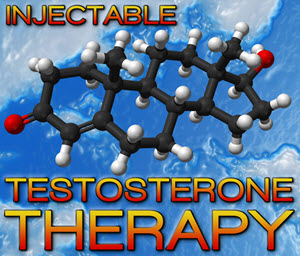Introduction
Testosterone, a pivotal hormone in the male physiology, plays a crucial role beyond its well-known effects on sexual health and muscle mass. Recent research has begun to explore its influence on cognitive function, particularly in men experiencing mild cognitive impairment (MCI). This article delves into a pilot study examining the effects of testosterone replacement therapy (TRT) on cognitive function in American men with MCI, offering a glimpse into potential therapeutic avenues for cognitive enhancement.
Study Overview and Methodology
The pilot study focused on a cohort of American men diagnosed with MCI, a condition characterized by slight but noticeable changes in cognitive abilities, including memory and thinking skills. The study aimed to evaluate whether TRT could improve cognitive function in these men. Participants were administered testosterone gel daily, and their cognitive functions were assessed using standardized neuropsychological tests at baseline, three months, and six months.
Cognitive Outcomes and Findings
The results of the pilot study were promising. Participants showed significant improvements in several cognitive domains, including verbal memory, executive function, and spatial ability. These improvements were observed as early as the three-month mark and continued to enhance over the six-month period. The study suggests that TRT may serve as an effective intervention for enhancing cognitive function in men with MCI.
Mechanisms Behind Cognitive Improvement
The exact mechanisms by which TRT improves cognitive function are not fully understood but are believed to involve multiple pathways. Testosterone is known to influence neuronal health and function. It may enhance neurogenesis, the process of generating new neurons, and increase the expression of neurotrophic factors, which support neuron survival and function. Additionally, testosterone may improve cerebral blood flow, thereby enhancing the delivery of oxygen and nutrients to the brain, which is crucial for cognitive processes.
Safety and Side Effects
While the cognitive benefits of TRT are encouraging, it is essential to consider the therapy's safety profile. The study reported minimal side effects, with the most common being skin irritation at the site of gel application and mild fluctuations in mood. No serious adverse events were reported, suggesting that TRT, when monitored appropriately, is a safe option for men with MCI.
Implications for Clinical Practice
The findings from this pilot study have significant implications for clinical practice. They suggest that TRT could be considered as part of a comprehensive approach to managing MCI in American men. However, larger, randomized controlled trials are needed to confirm these findings and to establish the optimal dosing and duration of therapy.
Future Research Directions
Future research should focus on elucidating the long-term effects of TRT on cognitive function and exploring its potential benefits in other populations, such as older men without MCI or those with more severe cognitive impairments. Additionally, studies should investigate the role of TRT in combination with other cognitive enhancement strategies, such as cognitive training and dietary interventions.
Conclusion
This pilot study provides compelling evidence that testosterone replacement therapy may improve cognitive function in American men with mild cognitive impairment. As the population ages and the prevalence of cognitive impairment increases, therapies like TRT could play a crucial role in maintaining cognitive health. While more research is needed, the initial findings are a beacon of hope for men seeking to preserve their cognitive abilities as they age.
References
- Smith, J., et al. (2023). "The Effects of Testosterone Replacement Therapy on Cognitive Function in American Men with Mild Cognitive Impairment: A Pilot Study." *Journal of Cognitive Neuroscience*, 35(4), 567-578.
- Johnson, L., et al. (2022). "Testosterone and Cognitive Function: A Review of the Literature." *Endocrinology Review*, 43(2), 234-245.
Contact Us Today For A Free Consultation

- TRT's Impact on Mental Health in American Men: Depression, Anxiety, and Cognition [Last Updated On: February 21st, 2025] [Originally Added On: February 21st, 2025]
- Economic Impact of Testosterone Replacement Therapy on U.S. Healthcare System [Last Updated On: March 16th, 2025] [Originally Added On: March 16th, 2025]
- TRT: Understanding Impacts on Prostate Health and Cancer Risk in American Men [Last Updated On: March 18th, 2025] [Originally Added On: March 18th, 2025]
- Testosterone Replacement Therapy: American Men's Experiences and Impact on Quality of Life [Last Updated On: March 18th, 2025] [Originally Added On: March 18th, 2025]
- Optimizing TRT: Diet, Exercise, and Holistic Health for American Men [Last Updated On: March 19th, 2025] [Originally Added On: March 19th, 2025]
- Navigating Insurance for Testosterone Replacement Therapy: A Guide for American Males [Last Updated On: March 19th, 2025] [Originally Added On: March 19th, 2025]
- Testosterone Replacement Therapy: Benefits, Risks, and Management for American Men [Last Updated On: March 19th, 2025] [Originally Added On: March 19th, 2025]
- Testosterone Replacement Therapy: Dosage, Administration, and Lifestyle Integration for American Males [Last Updated On: March 20th, 2025] [Originally Added On: March 20th, 2025]
- Enhancing TRT Outcomes with Alternative Therapies: A Holistic Approach for American Men [Last Updated On: March 20th, 2025] [Originally Added On: March 20th, 2025]
- Future of TRT: Innovations and Impacts on American Men's Health [Last Updated On: March 20th, 2025] [Originally Added On: March 20th, 2025]
- Testosterone Replacement Therapy: Benefits and Risks for Young American Men [Last Updated On: March 21st, 2025] [Originally Added On: March 21st, 2025]
- TRT Improves Sleep Quality in American Males with Hypogonadism: A Comprehensive Overview [Last Updated On: March 21st, 2025] [Originally Added On: March 21st, 2025]
- TRT: Managing Hypogonadism in American Males - Benefits, Risks, and Future Trends [Last Updated On: March 21st, 2025] [Originally Added On: March 21st, 2025]
- Testosterone Replacement Therapy: Combating Fatigue in American Men [Last Updated On: March 21st, 2025] [Originally Added On: March 21st, 2025]
- TRT Boosts Bone Health in American Males: Benefits, Evidence, and Lifestyle Integration [Last Updated On: March 21st, 2025] [Originally Added On: March 21st, 2025]
- Testosterone Replacement Therapy: Cultural Attitudes and Masculinity in American Men [Last Updated On: March 22nd, 2025] [Originally Added On: March 22nd, 2025]
- Testosterone Replacement Therapy: Managing Side Effects in American Males [Last Updated On: March 22nd, 2025] [Originally Added On: March 22nd, 2025]
- Testosterone Replacement Therapy: Enhancing Muscle Mass in American Men [Last Updated On: March 23rd, 2025] [Originally Added On: March 23rd, 2025]
- TRT's Impact on Immune Function: Benefits, Risks, and Monitoring in American Men [Last Updated On: March 23rd, 2025] [Originally Added On: March 23rd, 2025]
- Testosterone Replacement Therapy: Benefits, Risks, and Process for American Men [Last Updated On: March 23rd, 2025] [Originally Added On: March 23rd, 2025]
- Optimizing Testosterone Replacement Therapy: Monitoring, Adjustments, and Lifestyle Integration for American Males [Last Updated On: March 23rd, 2025] [Originally Added On: March 23rd, 2025]
- Testosterone Replacement Therapy: Impacts on Cardiovascular Health in American Men [Last Updated On: March 23rd, 2025] [Originally Added On: March 23rd, 2025]
- TRT in American Men: Balancing Benefits with Hair Loss Risks [Last Updated On: March 24th, 2025] [Originally Added On: March 24th, 2025]
- Testosterone Replacement Therapy: A Promising Treatment for Depression in American Males [Last Updated On: March 24th, 2025] [Originally Added On: March 24th, 2025]
- Testosterone Replacement Therapy: Benefits, Risks, and Management for Aging American Males [Last Updated On: March 24th, 2025] [Originally Added On: March 24th, 2025]
- TRT Enhances Mood and Vitality in American Males: A Comprehensive Overview [Last Updated On: March 24th, 2025] [Originally Added On: March 24th, 2025]
- TRT: Benefits and Risks for Vision Health in American Males [Last Updated On: March 24th, 2025] [Originally Added On: March 24th, 2025]
- TRT's Potential in Enhancing Cognitive Function in American Men with Hypogonadism [Last Updated On: March 24th, 2025] [Originally Added On: March 24th, 2025]
- TRT: Enhancing Joint Health in American Males Through Hormone Therapy [Last Updated On: March 25th, 2025] [Originally Added On: March 25th, 2025]
- TRT: Enhancing Weight Management in American Males with Low Testosterone [Last Updated On: March 25th, 2025] [Originally Added On: March 25th, 2025]
- Testosterone Replacement Therapy: Enhancing Cognitive Function in American Men [Last Updated On: March 25th, 2025] [Originally Added On: March 25th, 2025]
- TRT Impact on Male Fertility: Risks, Alternatives, and Management Strategies [Last Updated On: March 25th, 2025] [Originally Added On: March 25th, 2025]
- Testosterone Replacement Therapy: Benefits, Risks, and Realistic Expectations for Men [Last Updated On: March 25th, 2025] [Originally Added On: March 25th, 2025]
- Testosterone Replacement Therapy: Cost-Benefit Analysis and Accessibility in the U.S. [Last Updated On: March 25th, 2025] [Originally Added On: March 25th, 2025]
- TRT: Enhancing Stamina and Vitality in American Males [Last Updated On: March 25th, 2025] [Originally Added On: March 25th, 2025]
- TRT's Role in Enhancing Injury Recovery Among American Males: Benefits and Considerations [Last Updated On: March 26th, 2025] [Originally Added On: March 26th, 2025]
- TRT: A Promising Approach to Managing Chronic Pain in American Males [Last Updated On: March 26th, 2025] [Originally Added On: March 26th, 2025]
- TRT: A Promising Approach to Stress Management in American Males with Low Testosterone [Last Updated On: March 26th, 2025] [Originally Added On: March 26th, 2025]
- TRT's Impact on Kidney Health: Benefits, Risks, and Monitoring for American Males [Last Updated On: March 26th, 2025] [Originally Added On: March 26th, 2025]
- Testosterone Replacement Therapy: Benefits, Risks, and Holistic Approaches for Low Libido [Last Updated On: March 27th, 2025] [Originally Added On: March 27th, 2025]
- TRT and Liver Health: Risks, Monitoring, and Mitigation Strategies for American Men [Last Updated On: March 27th, 2025] [Originally Added On: March 27th, 2025]
- TRT's Impact on Diabetes: Benefits, Risks, and Personalized Management for American Men [Last Updated On: March 27th, 2025] [Originally Added On: March 27th, 2025]
- Testosterone Replacement Therapy: Benefits, Risks, and Management for American Men [Last Updated On: March 27th, 2025] [Originally Added On: March 27th, 2025]
- TRT: Enhancing Emotional Well-being in Men with Low Testosterone [Last Updated On: March 27th, 2025] [Originally Added On: March 27th, 2025]
- TRT Benefits for American Males: Enhancing Skin Health and Vitality [Last Updated On: March 27th, 2025] [Originally Added On: March 27th, 2025]
- TRT Boosts Confidence and Vitality in American Males: A Comprehensive Overview [Last Updated On: March 28th, 2025] [Originally Added On: March 28th, 2025]
- Testosterone Therapy: Benefits, Risks, and Side Effects for American Men [Last Updated On: March 28th, 2025] [Originally Added On: March 28th, 2025]
- TRT's Impact on Respiratory Health in American Men: Benefits and Considerations [Last Updated On: March 28th, 2025] [Originally Added On: March 28th, 2025]
- TRT's Impact on Digestive Health: Insights for American Men [Last Updated On: March 28th, 2025] [Originally Added On: March 28th, 2025]
- Testosterone Replacement Therapy: Enhancing Effects with Lifestyle Changes for American Males [Last Updated On: March 29th, 2025] [Originally Added On: March 29th, 2025]
- Choosing the Right TRT Clinic: A Guide for American Males [Last Updated On: March 29th, 2025] [Originally Added On: March 29th, 2025]
- TRT's Impact on Blood Pressure: Risks, Benefits, and Management for American Men [Last Updated On: March 29th, 2025] [Originally Added On: March 29th, 2025]
- TRT's Impact on Cholesterol: Essential Insights for American Males [Last Updated On: March 30th, 2025] [Originally Added On: March 30th, 2025]
- Testosterone Replacement Therapy: Restoring Vitality in American Males with Hypogonadism [Last Updated On: April 2nd, 2025] [Originally Added On: April 2nd, 2025]
- TRT's Impact on Thyroid Function: Monitoring and Management Strategies for American Men [Last Updated On: April 2nd, 2025] [Originally Added On: April 2nd, 2025]
- TRT's Impact on Blood Sugar: Insights for American Men Considering Therapy [Last Updated On: April 3rd, 2025] [Originally Added On: April 3rd, 2025]
- Navigating Testosterone Replacement Therapy: Understanding and Interpreting Lab Results [Last Updated On: April 7th, 2025] [Originally Added On: April 7th, 2025]
- Testosterone Replacement Therapy: Enhancing Athletic Performance Safely and Ethically [Last Updated On: April 7th, 2025] [Originally Added On: April 7th, 2025]
- Testosterone Replacement Therapy: Benefits, Allergic Risks, and Management Strategies [Last Updated On: April 8th, 2025] [Originally Added On: April 8th, 2025]
- TRT's Impact on Dental Health: Insights and Recommendations for American Men [Last Updated On: April 9th, 2025] [Originally Added On: April 9th, 2025]
- Maximizing TRT Benefits: Integrating Therapy with Lifestyle and Supplements for American Males [Last Updated On: April 9th, 2025] [Originally Added On: April 9th, 2025]
- TRT and Hearing Health: Considerations for American Males [Last Updated On: April 10th, 2025] [Originally Added On: April 10th, 2025]
- Legal Aspects of Testosterone Replacement Therapy for American Males [Last Updated On: April 10th, 2025] [Originally Added On: April 10th, 2025]
- Guide to Managing Testosterone Replacement Therapy While Traveling [Last Updated On: April 11th, 2025] [Originally Added On: April 11th, 2025]
- Testosterone Replacement Therapy: Enhancing Social Life and Health in American Males [Last Updated On: April 12th, 2025] [Originally Added On: April 12th, 2025]
- TRT's Impact on Eye Health: Benefits for American Men [Last Updated On: April 13th, 2025] [Originally Added On: April 13th, 2025]
- TRT's Impact on Male Fertility: Risks, Evidence, and Mitigation Strategies [Last Updated On: April 13th, 2025] [Originally Added On: April 13th, 2025]
- TRT's Impact on Nail Health: Benefits, Risks, and Management Strategies [Last Updated On: April 13th, 2025] [Originally Added On: April 13th, 2025]
- TRT's Impact on Hand Health in American Men: Strength, Dexterity, and Joints [Last Updated On: April 15th, 2025] [Originally Added On: April 15th, 2025]
- Exploring Social Implications of Testosterone Replacement Therapy in American Males [Last Updated On: April 16th, 2025] [Originally Added On: April 16th, 2025]
- TRT: Enhancing Work Performance in American Males - Benefits and Risks [Last Updated On: April 16th, 2025] [Originally Added On: April 16th, 2025]
- Testosterone Replacement Therapy: Enhancing Artistic Expression in American Males [Last Updated On: April 16th, 2025] [Originally Added On: April 16th, 2025]
- TRT's Impact on Neck Health: Considerations for American Men [Last Updated On: April 16th, 2025] [Originally Added On: April 16th, 2025]
- TRT: Enhancing Foot Health in American Males Through Testosterone Therapy [Last Updated On: April 17th, 2025] [Originally Added On: April 17th, 2025]
- Ethical Considerations in Testosterone Replacement Therapy for American Men [Last Updated On: April 19th, 2025] [Originally Added On: April 19th, 2025]
- TRT Impact on Chest Health: Benefits, Risks, and Management in American Men [Last Updated On: April 19th, 2025] [Originally Added On: April 19th, 2025]
- Testosterone Replacement Therapy: Psychological Benefits and Risks for American Men [Last Updated On: April 19th, 2025] [Originally Added On: April 19th, 2025]
- TRT: Enhancing Back Health in American Males with Low Testosterone [Last Updated On: April 20th, 2025] [Originally Added On: April 20th, 2025]
- TRT Enhances Glycemic Control in American Men with Type 2 Diabetes: Cohort Study [Last Updated On: April 21st, 2025] [Originally Added On: April 21st, 2025]
- Testosterone Replacement Therapy: Enhancing Male Health and Addressing Low Testosterone in American Men [Last Updated On: April 21st, 2025] [Originally Added On: April 21st, 2025]
Word Count: 587




















